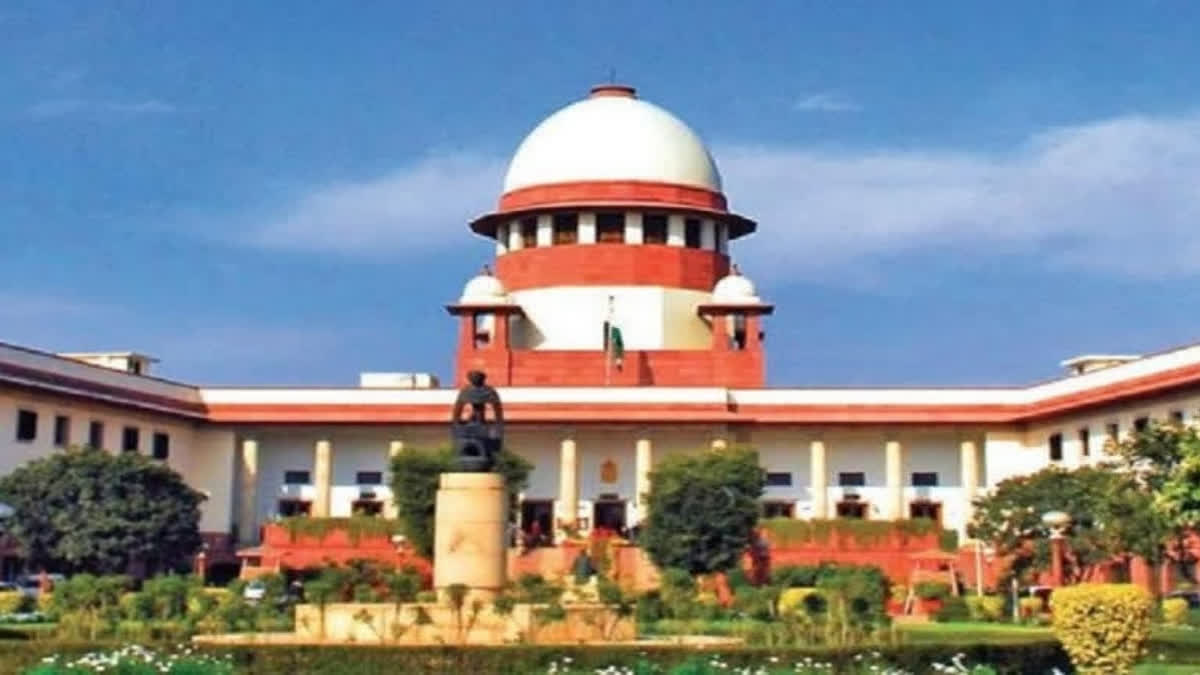New Delhi: The Supreme Court on Tuesday took exception to the Centre setting up multiple Expert Committees to examine the issue of a ban on hazardous pesticides, saying it seems that every time the government receives an adverse report from one committee, it forms a new committee, “you keep appointing committees till you get a favourable decision”.
A bench headed by Chief Justice of India DY Chandrachud questioned additional solicitor general (ASG) Vikramjit Banerjee, representing the Centre, why did the government form a new committee on pesticides after a committee under SK Khurana, which was tasked to review 27 pesticides and it made recommendations.
The Chief Justice sought clarification citing another committee's divergent stance and queried the reasons behind the change of view. He asked Banerjee, "Why do you have to make so many committees……once Khurana recommended the ban on 27 pesticides, why make another? The Chief Justice shot a volley of questions at the Centre’s counsel, “What was the basis of the Khurana Committee recommending a ban on 27 pesticides? Why did the Rajendran Committee ban three pesticides?”
The Chief Justice orally remarked, “It seems that every time you have an adverse report from one committee you form a new committee……you keep appointing committees till you get a favourable decision." Banerjee, defending the government's decision, said they followed a systematic process based on scientific advice and added, “We trust the science. We act in terms of science.....”.
Advocate Prashant Bhushan, representing a petitioner, contended that the Anupam Varma Committee and also the Khurana Committee had both recommended the banning of the same 27 pesticides, however, a new committee, the Rajendran Committee, was appointed. Bhushan added that the Rajendran Committee differed on the recommendations made by the earlier committees, and raised the issue of formation of new committees to examine the matter. After hearing submissions, the bench, comprising justices JB Pardiwala and Manoj Misra, scheduled the matter for further hearing on August 1 and asked the Centre to address queries raised by it. ASG agreed to file a detailed note on the matter.
The top court was hearing a plea seeking the removal of harmful chemicals and pesticides used in the country and raised the issue that an initial Expert Committee had already recommended banning 27 pesticides in the country. In 2015, a committee recommended banning 13 pesticides, which was objected to by the pesticides industry. Later, the government established Dr SK Malhotra Committee to review the status of 27 pesticides and the committee recommended a continued ban on those 27 pesticides in 2018.
Another sub-committee was formed by the Pesticide Registration Committee (RC) -- an apex body to regulate pesticides in the country--to review 27 pesticides under Dr SK Khurana. Based on Khurana's observation, the Ministry of Agriculture and Farmers’ Welfare (MoFAW) issued a draft notification to ban pesticides in May 2020. India recently removed a ban on 24 pesticides and before that, it continued to ban only three pesticides. The recent decision is a U-turn by the MoAFW from its May 2020 decision to ban all 27 pesticides.



